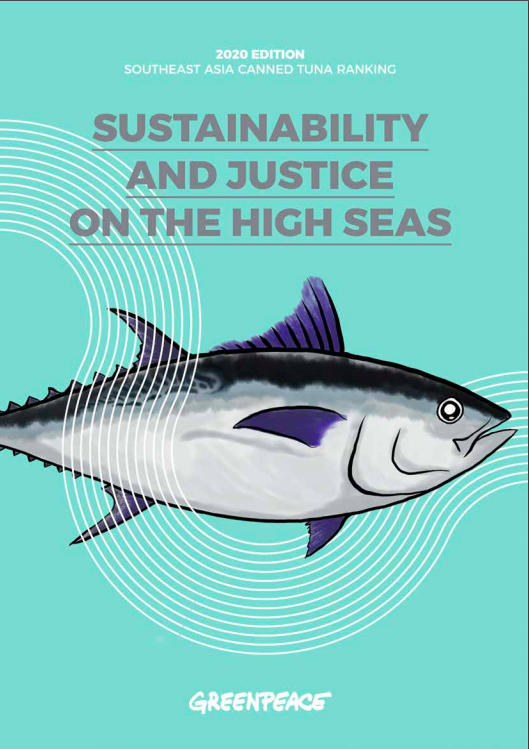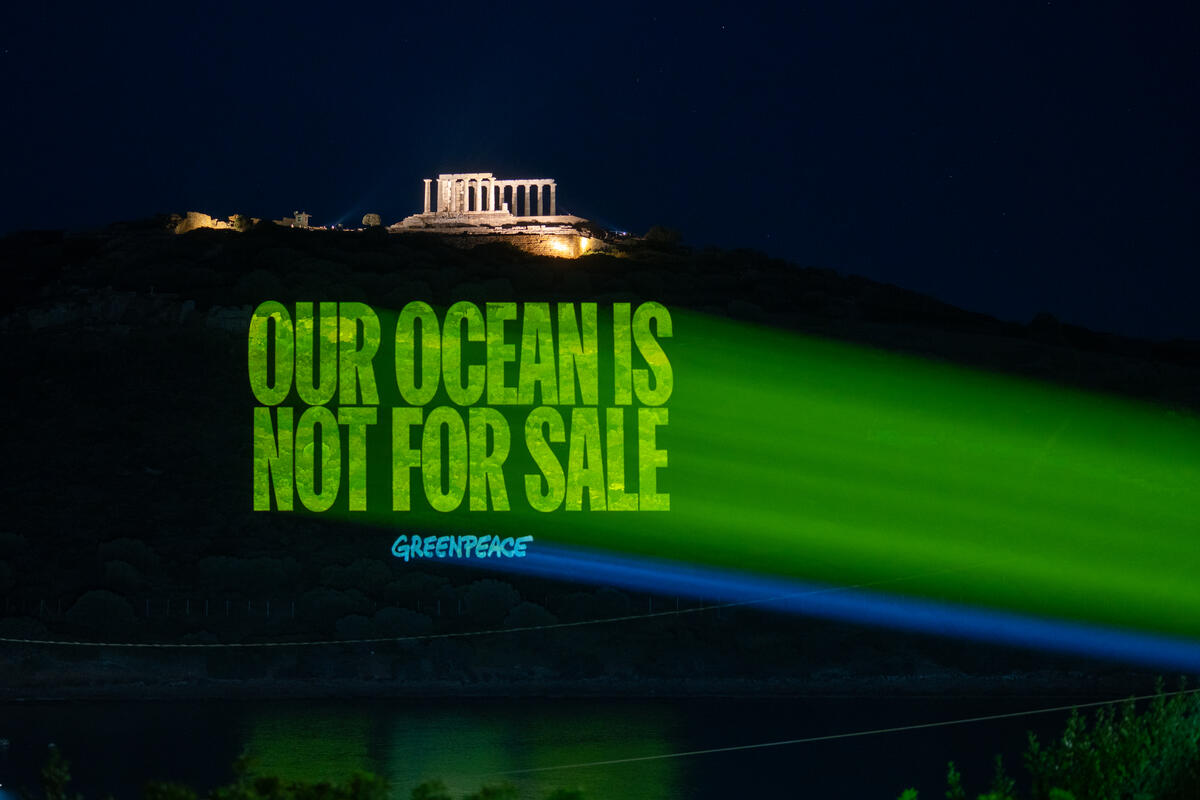Executive Summary
In the fourth edition of Greenpeace Southeast Asia’s Tuna Cannery Ranking, we evaluated nine canned tuna brands in Thailand, five tuna canneries in Indonesia, and six tuna canneries in the Philippines. In a span of five years, considerable progress has been made by these companies in working towards a more traceable and sustainable sourcing of tuna. However, measures towards a worker-friendly canned tuna industry that is free of abuse are in desperate need of verifiable time-bound commitments. An intolerably high number of documented incidents of labor abuse continue to plague Southeast Asia’s tuna industry and the East Asian tuna fisheries that supply many of Southeast Asia’s tuna canneries. This has forced Greenpeace to reassess how it fits human rights and labor issues into the existing scoring framework, to ensure that both labor abuse and environmental sustainability are given a fair accounting.
As with prior reports, Greenpeace Southeast Asia laments the continued “double standard” that exists wherein responsibly-sourced and highly traceable tuna from the Southeast Asia region is typically more accessible to customers in North America or Europe than to customers based right here in the region. Nowhere is this more evident than with Thai tuna brands; many consumer-facing brands profiled in this report are owned by parent companies that source the lion’s share of the tuna for foreign tuna brands (often with higher standards).
Globally, tuna stocks continue to experience intense pressure from destructive fishing practices, overfishing, and Illegal, Unreported and Unregulated fishing (IUU). Modern slavery at sea and other egregious human rights abuses are rampant in distant water fishing fleets found in every part of the world. Notably, having supplier codes of conduct and protective language in company policies that address labor are not enough, nor are “desktop-level” third party audits. Companies must perform due diligence on human rights and sustainability beyond what is necessary in other sectors, because tuna fishing remains an exceptionally high risk industry. Representative worker organisations and labor unions provide the strongest protections to workers and companies should create enabling conditions for fishers, especially migrant fishers, to form and lead their own unions. To ensure effective due diligence, companies should inform their mitigation measures and remediation based on robust engagement with these groups. Also, on-the-water audits and anonymous, widely available whistleblower tools (such as easily-accessible worker hotlines) as part of effective non-judicial grievance mechanisms can also root out any possible environmental violations and labor abuse in the supply chain.
Key Findings
As in prior rankings, Greenpeace uses a seven point criteria to rate companies on their tuna sourcing practices. Each criterion is given weight indicating relevant importance. The criteria include: Sustainability (20%), Legality (20%), Sourcing Policy (20%), Traceability (15%), Driving Change (10%), Transparency and Customer Information (10%), and Equity (5%).
Their scores in each of these seven categories are then calculated to establish an overall rating, which is either Good (green, 70-100%), Fair (yellow, 40-69%), or Poor (red, 0-39%). This year, a total of 17 companies participated in the Greenpeace-provided survey, and 3 non-participating companies were scored based on publicly available information.
Companies with an overall Good (green) rating are P.T. Citraraja Ampat Canning (Indonesia), Super C Chef(Thailand), Alliance Select Foods International(Philippines) and P.T. Samudra Mandiri Sentosa(Indonesia).
The top performers for Traceability with scores ranging from 90 – 100% are Super C Chef, Aro, and Nautilus from Thailand, General Tuna Corp., Ocean Canning Corp. Seatrade Canning Corp.from the Philippines, and PT. Citraraja Ampat Canningfrom Indonesia.
For Sustainability of current sourcing, the top companies with scores ranging from 90 – 100% are Aro from Thailand, Alliance Select Foods Internationalfrom the Philippines, and PT. Citraraja Ampat Canning, Samudra Mandiri Sentosa, PT. Deho Canning Co.,and PT. Sinar Pure Foods International from Indonesia.
Only one company, Alliance Select Foods International, is in the green zone for Legality and Labor. For this criteria, we asked brands and canneries questions relating to elimination of forced labor at sea.
- 13 (65%) of the 20 companies publicly support the ILO C-1881 by supporting advocacy efforts and its full implementation.
- 11 (55%) of the 20 companies have established measures for the early detection and prevention of modern slavery at sea.
- 8 (40%) of the 20 companies refuse to source tuna from vessels that collect guarantee deposits from its crew.
- 7 (35%) of the 20 companies require fishing crew manifests.
- A paltry 4 (20%) of the 20 companies have whistleblower and anonymous hotlines or email where affected migrant fishers can file complaints. It remains unclear how many people file complaints or whether these complaints are fairly resolved.
For the Equity criteria, only three companies from the Philippines had a green score: Alliance Select Foods International, General Tuna Corp., and Celebes Canning Corp.
In the Sourcing Policy category, companies can learn from the examples set by PT. Samudra Mandiri Sentosaand PT. Citraraja Ampat Canningfrom Indonesia.
In the Transparency and Customer Information category, the top performers with green scores are Super C Chefand Tops from Thailand.
In the Driving Change category, more progressive and proactive work is desperately needed, as no company has yet reached the green mark.
In general, most of the companies sourcing from purse seiners are shifting procurement to require their tuna to come from FAD-free purse seine operations, or from handline and pole and line fishing, which are more sustainable. Nine companies source from pole and line vessels, while another twelve source from FAD-free fishing vessels. Only six companies source handline-caught tuna. Fourteen companies are still procuring from purse seine fishing vessels with no FAD-free requirements, and one company is sourcing from longline.
In terms of species procured, eighteen companies source skipjack, sixteen companies source yellowfin, five source bigeye, three companies source tonggol, and four companies source albacore.
However, some companies are also procuring from Taiwanese longline fishing vessels where some fishing fleets have been involved in forced labor at sea. Companies are urged to take swift action to review and reform their supply chains, as one case of human rights abuse on any fishing vessel is one too many.
Envisioning a more sustainable and socially just fishing industry: what your company can do
Greenpeace seeks a substantial transformation from fisheries production dominated by large- scale, socially and economically unjust, and environmentally destructive methods to prioritise smaller scale, community-based, labour intensive fisheries using ecologically responsible, selective fishing technology, and environmentally sound practices. International trade in fisheries products should not undermine the legitimate interests of coastal communities, which include protecting fisherfolk’s livelihoods, human and labour rights, or negatively impact food security, especially in developing countries.
To this end, the fish trading, processing, and retailing industries have a fundamental role to play by reviewing their purchasing policies and practices so that market conditions are created to favour fisheries that comply with strict social and environmental criteria.
In order to achieve this, Greenpeace Southeast Asia strongly recommends the following:
1. On sustainability of current sourcing. The company should source from sustainable fishing gears such as pole and line, handline, and FAD free purse seining. For those sourcing from longline, best available by-catch mitigation practices and an implementation plan to reach 100% observer coverage should be required. Companies must avoid sourcing from stocks that have been deemed to be overfished or are experiencing overfishing by the relevant tuna RFMO.
2. On legality and labor issues. Companies should adhere to their corporate responsibility to respect human rights as outlined in the UN Guiding Principles on Business and Human Rights. This includes establishing a robust human rights policy in line with international human and labor rights standards, conducting human rights due diligence, and ensuring effective remediation of human rights abuses. Companies should also support and promote the ratification of ILO Work in Fishing Convention (C-188), promote decent work2 for the workers who fish, process and produce seafood, and advocate for the elimination of fundamental human and labour rights abuses. Brands and companies are strongly advised to collaborate with each other to develop a user friendly platform where migrant fishers can anonymously and safely report forced labor and other human rights issues on board distant water fishing fleets. The development of this application should be used by all Southeast Asian canneries which supply local and global canned tuna markets.
3. On sourcing policy. Greenpeace advocates that at-sea transshipments be phased out urgently and that transshipments be conducted only at port under strict scrutiny. Companies should consider sourcing from suppliers that are not involved in transshipment at sea and from vessels that only spend a maximum of three months at sea before going to a port, where they allow crew unfettered access to port services for a minimum of 10 days.
4. On traceability. Companies should perform annual audits conducted by a credible, independent, and reputable third party auditor. The audit should ensure that brands can trace tuna products back to the fishing ground, fishing vessel, and fishing method. We urge the brands and canneries to periodically publish the list of fishing vessels that supply tuna for their products.
5. On transparency and customer information. Companies should maintain transparency by making sure that their websites inform consumers about company procurement policies as well as details on species of tuna used, fishing area, fishing method, and fishing vessel. Brands should provide such information on their packaging and retailers should dedicate store signage to highlight more sustainable tuna options for customers.
6. On driving change. Companies are encouraged to support comprehensive Fisheries Improvement Projects, develop measures to eliminate modern slavery at sea, and support global advocacy efforts to ratify Work in Fishing Convention.
7. On equity. Companies can support coastal communities by sourcing from locally owned vessels that fish in their respective EEZs, and by using local ports and crews if the vessels are foreign owned. In the case of processed tuna, companies should source tuna from canneries that operate in the region the tuna was caught and are locally owned.
Read the full report here
REFERENCES:
1 The ILO Work in Fishing Convention No.188 (2007) entered into force in 2017, and boosts global efforts to ensure decent work for the world’s 38 million workers in the fishing sector by setting the basic standards of decent work in the fishing industry. See <https://www.ilo.org/global/about-the-ilo/newsroom/news/WCMS_596898/lang–en/index.htm> [Accessed 26 June 2020].
2 As defined by the International Labour Organization. See: <https://www.ilo.org/global/topics/decent-work/lang–en/index.htm> [Accessed 26 June 2020].



